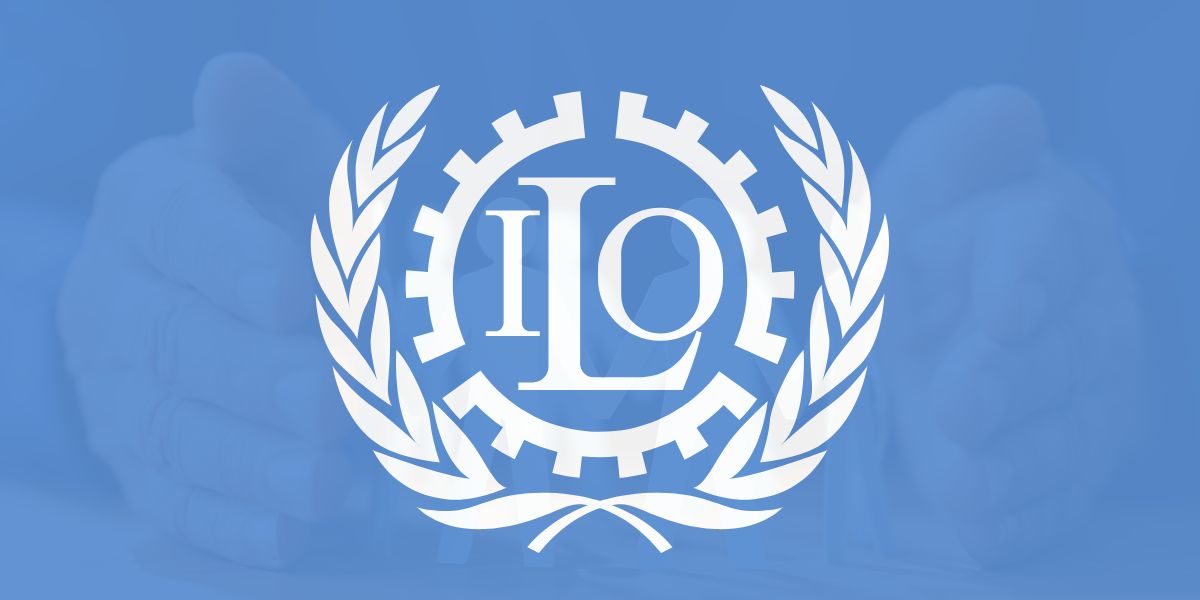The International Labour Organization (ILO) is a notable organization of the United Nations that targets on promoting fairness and globally observe human and labor rights. Since it’s creation in October 1919, the agency has been working hard to achieve social justice. What makes it unique is its three-sided structure, which brings together governments, employers, and workers from 187 Member States. They collaborate to establish labor standards, create policies, and develop programs that aim to improve work opportunities for everyone.
Origin and History
The ILO Headquarter is in Geneva, Switzerland and was established after World War I as part of the Treaty of Versailles. Its founders understood the importance of social justice in maintaining long-term peace and prosperity. Over the years, it has played a vital role in promoting labor and human rights, especially during critical times like the Great Depression and the decolonization process. In 1946, it became an exceptional association of the United Nations, further cementing its commitment to its mission.
Unique Tripartite Structure
The ILO’s tripartite structure is a key aspect that sets it apart. It ensures that the opinions and interests of workers, employers, and governments are identically characterized. This collaborative approach helps shape labor standards and policies in a fair and inclusive manner, taking into account the views of all stakeholders.
Mission and Impact
The primary objectives of International Labour Organization revolve around promoting rights at work, creating decent employment opportunities, enhancing social protection, and fostering dialogue on work-related issues. By setting international labor standards, it provides guidelines on various aspects of work, including child labor, women workers’ protection, working hours, social security, occupational health and safety, and the elimination of forced labor and discrimination.
The impact of it’s work is evident through numerous success stories. For instance, in Indonesia, the ILO’s 8.7 Accelerator Lab inspired a communications student to campaign for labor rights for fishers in her community. This raised awareness about the risks of forced labor at sea. In Zambia, the corporation partnered with organizations to implement an economic empowerment initiative for people living with HIV. This support helped them start or improve their businesses during the SARS-CoV-2 (COVID-19) outbreak. These stories showcase the tangible difference the ILO makes in the lives of individuals and communities across the world.
International Labour Standards
A crucial aspect of it’s work is the adoption of international labor standards, that is Conventions and Recommendations. These standards serve as guidelines for member states to implement in their own laws and policies. The Conventions cover a wide range of labor-related topics, including workplace health, freedom of association, occupational safety, collective bargaining, the abolition of forced labor, and the promotion of full employment. The Recommendations offer additional guidance on specific issues and serve as a reference for member states.
Technical Cooperation and Assistance
In addition to setting labor standards, the syndicate provides technical cooperation and assistance to member states, particularly those in need of support. More than half of the ILO’s resources are dedicated to technical cooperation programs, which are accomplished in participation with other United Nations agencies. These programs focus on areas such as vocational training, employment planning, social institutions development, and improving working and living conditions. The aim is to help countries implement the labor standards and policies set by the ILO, promoting sustainable and inclusive development.
Research, Training, and Education
To further its mission, the institution conducts extensive research, training, and education activities related to labor and social matters. It serves as a major source of publications and documentation, providing valuable insights and knowledge on various labor-related topics. The firm has also framed specialized educational institutions, like the International Institute for Labour Studies (1962) in Geneva and the International Center for Advanced Technical and Vocational Training (1965) in Turin, Italy. These institutions enhance capacity building and promote the sharing of knowledge.
Role of the ILO and Congress
Congress plays a significant role in overseeing and legislating the ILO’s activities. Congress provides funding for the operations of the network, integrates globally acknowledged ILO principles into U.S. trade preference laws and free trade agreements, assesses the adoption of conventions, and oversees the work of the organization. The efforts of the federation align with Congress’ goals of promoting social and economic justice, decent work, and worker rights.
Conclusion
In conclusion, the International Labour Organization is crucial in advancing social justice, labor rights, and decent work opportunities worldwide. Through its tripartite structure, the ILO ensures that the voices of workers, employers, and governments are considered when shaping labor standards and policies. By adopting international labor standards, providing technical cooperation programs, conducting research and education initiatives, the agency strives to create a fairer and more sustainable world of work. As a key player in promoting social and economic justice, the system continues to make a positive impact on workers’ lives globally.
